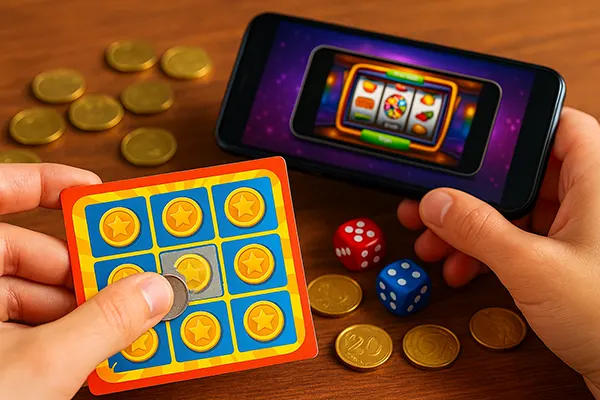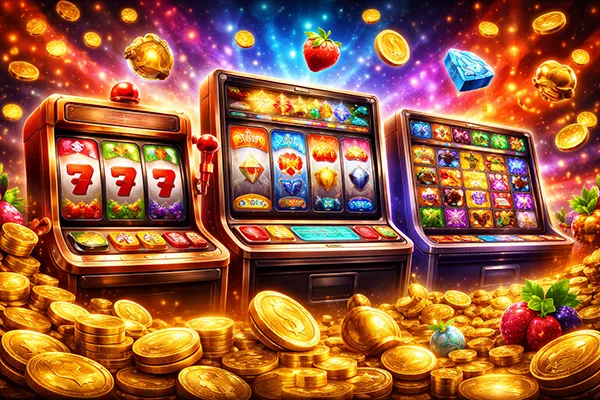
Microgames and Online Scratch Cards: Should They Be Taken Seriously?
Over the past decade, the online gambling industry has undergone significant diversification. Alongside traditional slot machines and table games, microgames and scratch cards have grown in popularity. These simple formats attract players with quick rounds, straightforward mechanics, and low stakes. However, the question arises: should these games be treated as a serious form of online entertainment or simply as casual diversions?
The Nature of Microgames and Their Appeal
Microgames are designed to provide instant results within short sessions. They typically require minimal time investment and are aimed at players who prefer accessible formats. Titles of this kind often rely on simple mechanics such as dice rolls, card flips, or wheel spins. Their growing availability across online casinos in 2025 demonstrates that the demand for concise gaming experiences continues to rise.
Unlike slots or live dealer games, microgames focus less on immersive graphics or extended play. Their main advantage is immediacy. Players can engage in multiple rounds in a matter of minutes, which makes these games especially appealing for those who do not wish to spend long periods in front of the screen.
Industry reports in 2025 indicate that microgames generate significant engagement, particularly on mobile devices. The compatibility with smartphones and tablets ensures that these titles can be played during commutes or short breaks, reinforcing their popularity among younger audiences seeking quick entertainment.
Scratch Cards in the Digital Space
Scratch cards have successfully transitioned from physical kiosks to online formats. Digital versions preserve the core appeal of revealing hidden symbols but expand the experience through animated graphics and bonus features. Players can now choose from themed scratch cards, offering varied prize pools and even progressive jackpots.
Statistics reveal that online scratch cards remain popular in regulated European markets, with operators frequently including them in promotional campaigns. In many cases, these cards are offered as part of welcome bonuses or loyalty rewards, making them accessible even to casual players who may not actively seek them out.
While the prizes are generally smaller compared to jackpots in slot games, the instant nature of scratch cards makes them attractive to a wide audience. For some, they represent a nostalgic throwback to physical lottery tickets, now enhanced with digital convenience and broader availability.
Financial Aspects and Risk Factors
One reason scratch cards and microgames are sometimes overlooked is their relatively modest prize structures. However, this does not mean they lack value. In 2025, industry data shows that many operators use these games to balance portfolios, offering players alternatives that require smaller wagers but maintain entertainment value.
At the same time, risk awareness remains essential. The fast-paced design of microgames can encourage repeated play, which may escalate spending. Responsible gambling organisations emphasise the importance of setting clear limits, particularly when engaging with games that are easy to play in rapid succession.
For serious players, the return-to-player (RTP) percentages of scratch cards and microgames vary significantly. Some titles are competitive with slot machines, while others operate with lower payout rates. Understanding these figures is essential for informed play, ensuring that participants are aware of the actual probabilities of winning.
Regulation and Consumer Protection
As of 2025, scratch cards and microgames fall under the same regulatory frameworks as other forms of online gambling in licensed jurisdictions. This means operators must ensure fairness through certified random number generators and comply with consumer protection standards. Such measures are critical for maintaining trust among players.
Authorities in markets such as the UK, Denmark, and Malta continue to enforce strict guidelines for transparency. These include publishing payout percentages and providing tools for players to monitor and control their spending. Without such oversight, the risk of misuse would be considerably higher.
Players are advised to participate only in licensed environments, as unregulated operators may not guarantee fair outcomes. In this context, the seriousness of scratch cards and microgames lies not only in entertainment but also in the responsibility of both providers and consumers to maintain ethical standards.

Future Prospects of Microgames and Scratch Cards
The outlook for microgames and online scratch cards in 2025 and beyond appears strong. Developers are experimenting with hybrid formats, blending elements of slots, bingo, and instant-win mechanics. These innovations aim to retain the simplicity of the genre while introducing new layers of engagement.
Another trend is the incorporation of social features, allowing players to share results, participate in leaderboards, or join community challenges. Such developments enhance the interactive aspect, transforming what was once a solitary experience into a more connected form of entertainment.
Furthermore, the demand for responsible gambling tools will continue to grow. As operators expand their scratch card and microgame portfolios, integrating features such as session reminders and wager caps will be key to ensuring sustainable engagement. This balance between innovation and protection will determine the role of these games in the broader market.
Player Perspectives and Practical Advice
From the player’s perspective, microgames and scratch cards should be viewed as accessible entertainment rather than a primary source of winnings. Their value lies in providing quick enjoyment with relatively low stakes, not in delivering life-changing payouts.
Practical advice for players includes checking the RTP values before starting, setting personal budgets, and ensuring that games are played within licensed environments. These steps help minimise risks and maximise enjoyment, particularly when engaging in fast-paced formats.
Ultimately, whether these games should be taken seriously depends on context. While they may not offer the depth of traditional table games or high-payout slots, they fulfil a clear role in the online gambling ecosystem, delivering convenience, variety, and short-session entertainment for a wide audience.
Latest News
-
Types of Slots: Classic, Video Slots, Mega...
Slot games look similar on the surface, but the underlying mechanics can feel completely different once you …

-
How to Keep a Bankroll Journal Properly in...
A bankroll journal is not a “nice-to-have” habit — it is a control tool that shows what …

-
How Responsible Gambling Control Systems W...
Responsible gambling control systems are a core element of how modern casinos operate in 2025. These mechanisms …

